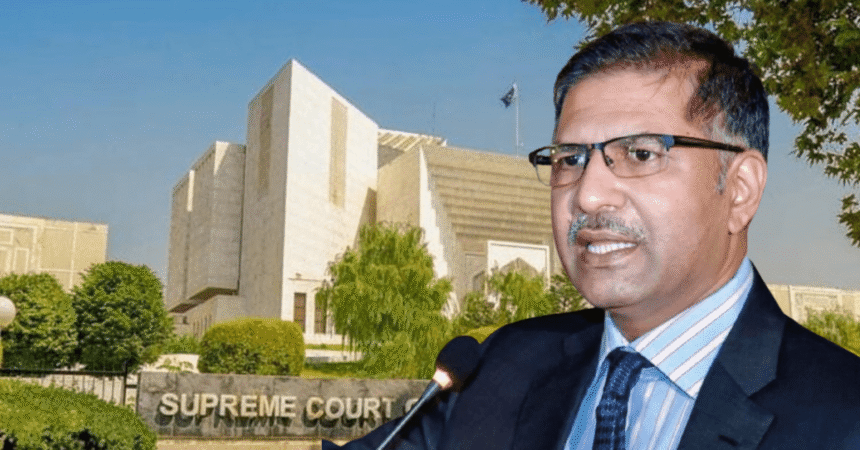In a landmark decision, the Supreme Court of Pakistan has overturned its previous interpretation of Article 63-A of the Constitution, which deals with disqualification of lawmakers for defection. This ruling has profound implications for the political landscape of Pakistan, sparking debates among legal experts, political analysts, and the general public regarding the autonomy of parliamentarians and the integrity of political parties.
Understanding Article 63-A
Article 63-A is a crucial component of Pakistan’s Constitution, specifically designed to prevent political instability caused by defections. It stipulates that a member of a parliamentary party can be disqualified for joining another political party after being elected. This article aims to promote party loyalty and ensure that elected representatives remain accountable to their political affiliations.
The controversy surrounding this article typically centers on the balance between party discipline and individual lawmakers’ rights to vote according to their conscience. In recent years, especially during times of political turmoil, the interpretation of Article 63-A has become a flashpoint for conflict between various political entities.
Background of the Case
The recent Supreme Court case arose amid heightened political tensions, particularly following the ousting of former Prime Minister Imran Khan. As the Pakistan Tehreek-e-Insaf (PTI) party navigated the complexities of the current political climate, its leaders sought clarity on the implications of the Article 63-A interpretation.
PTI’s legal counsel, Ali Zafar, argued that previous court rulings could pave the way for what he termed “horse-trading” — a situation where lawmakers might switch parties for personal gain rather than serving their constituents. This assertion highlighted the fears among PTI leaders that a ruling in favor of the government could undermine the integrity of the electoral process.
Legal Arguments and Court Proceedings
During the Supreme Court hearing, Ali Zafar presented a robust argument against the government’s position. He contended that the court’s previous interpretation of Article 63-A had significant implications for the electoral process and democracy in Pakistan. “If you give the decision in the government’s favor, it will lead to horse-trading,” he stated, emphasizing the potential consequences of such a ruling.
Chief Justice Umar Ata Bandial responded sternly to Zafar’s remarks, warning him not to cross the limits of decorum. “You are crossing the limits. The court can issue you a contempt of court notice,” the Chief Justice said. This exchange illustrated the tensions within the courtroom, as justices expressed frustration over what they perceived as politicization of legal arguments.
Justice Isa intervened, reminding the court that the right to vote belongs to the individual lawmaker, not the political party. He stressed that parliamentarians should not be subjected to judicial interpretations regarding their political affiliations. This assertion reflects a growing sentiment among some justices that the judiciary should refrain from delving into matters that might politicize the courts.
Key Insights from the Justices
The Supreme Court justices expressed a variety of opinions regarding the interpretation of Article 63-A. Justice Mandokhel emphasized that the so-called original decision regarding the article was merely an opinion concerning its implications in the current context. He further questioned how Zafar could conclude that a ruling favoring the government would lead to horse-trading, implying that such assertions were unfounded.
The Chief Justice made it clear that the court was not interested in discussing proposed constitutional amendments by the government. “Please stop ridiculing the courts,” he said, reinforcing the notion that the judiciary must remain impartial and focused on legal matters rather than political rhetoric.
The Role of Political Rhetoric
Throughout the hearing, the tension escalated as Zafar continued to reference Imran Khan in his arguments. Justice Isa expressed his irritation with the repeated mention of Khan’s name, urging the counsel to focus on legal matters rather than engaging in political discourse. This exchange underscored the complexities of the relationship between the judiciary and the political landscape in Pakistan, where court rulings can have far-reaching implications for political dynamics.
The Chief Justice further remarked on the absurdity of politicizing the court, stating, “You will feel embarrassed when we do that.” His comments suggested a desire for the legal process to remain unclouded by political maneuvering.
Implications of the Verdict
The Supreme Court’s decision to overturn its earlier interpretation of Article 63-A has significant implications for Pakistan’s political landscape. By affirming lawmakers’ rights to vote according to their conscience, the ruling allows for a more independent approach to legislative decision-making. This may enhance democratic practices, encouraging parliamentarians to prioritize their constituents’ needs over party loyalty.
However, the ruling also raises concerns about potential instability within political parties. If lawmakers are emboldened to switch allegiances based on personal interests, the coherence of political parties could be severely undermined. Such a scenario may lead to a fragmented political landscape, making it difficult for parties to maintain their ideological integrity.
A New Precedent for Political Conduct
The Supreme Court’s ruling sets a new precedent regarding the conduct of lawmakers and their relationship with political parties. With the ability to vote independently, parliamentarians may feel less pressure to conform to party directives, fostering a culture of accountability and transparency.
However, this newfound freedom could also lead to challenges for party leadership. Political parties may struggle to maintain cohesion if members feel empowered to defect based on convenience. This may necessitate a reevaluation of internal party governance structures and strategies to foster loyalty among lawmakers.
Political Reactions
The reactions to the Supreme Court’s ruling have been swift and varied. PTI leaders hailed the decision as a validation of their position regarding the autonomy of lawmakers. Many within the party view this ruling as an opportunity to reclaim political agency and promote a more democratic environment.
Conversely, opposition parties have expressed concern over the potential ramifications of this ruling. Critics argue that allowing lawmakers to defect without consequence could lead to political instability, undermining the integrity of electoral processes. Some political analysts warn that this ruling may exacerbate divisions within the political landscape, making it challenging for parties to operate effectively.
Implications for Future Elections
As Pakistan approaches upcoming elections, the implications of this ruling will undoubtedly shape party strategies and alliances. Political parties will need to navigate the complexities of maintaining party loyalty while respecting lawmakers’ rights to exercise their voting autonomy. This delicate balance will be crucial in determining the success of political parties in upcoming contests.
Moreover, the potential for increased defections could lead to a shifting political landscape, where alliances are formed and dissolved based on individual lawmakers’ interests. This unpredictability may challenge traditional power dynamics within the political arena, requiring parties to adapt their strategies to remain relevant.
The Future of Political Integrity
The Supreme Court’s overturning of its interpretation of Article 63-A represents a pivotal moment in Pakistan’s political history. As lawmakers grapple with the implications of this ruling, the future of political integrity and accountability remains uncertain.
The interplay between the judiciary and political entities is a critical aspect of Pakistan’s governance, and this ruling serves as a reminder of the delicate balance that must be maintained. As stakeholders in the political arena adapt to this new reality, the ongoing discourse surrounding Article 63-A will remain at the forefront of constitutional and electoral discussions.
In a country where democratic practices are continually challenged, the Supreme Court’s decision may either strengthen or undermine the political system, depending on how lawmakers and parties respond. The coming months will be crucial in shaping the future of Pakistan’s political landscape, as leaders and lawmakers navigate the complexities of this new legal interpretation.
#SupremeCourt #Article63A #PakistanPolitics #PTI #Judiciary #PoliticalRhetoric







